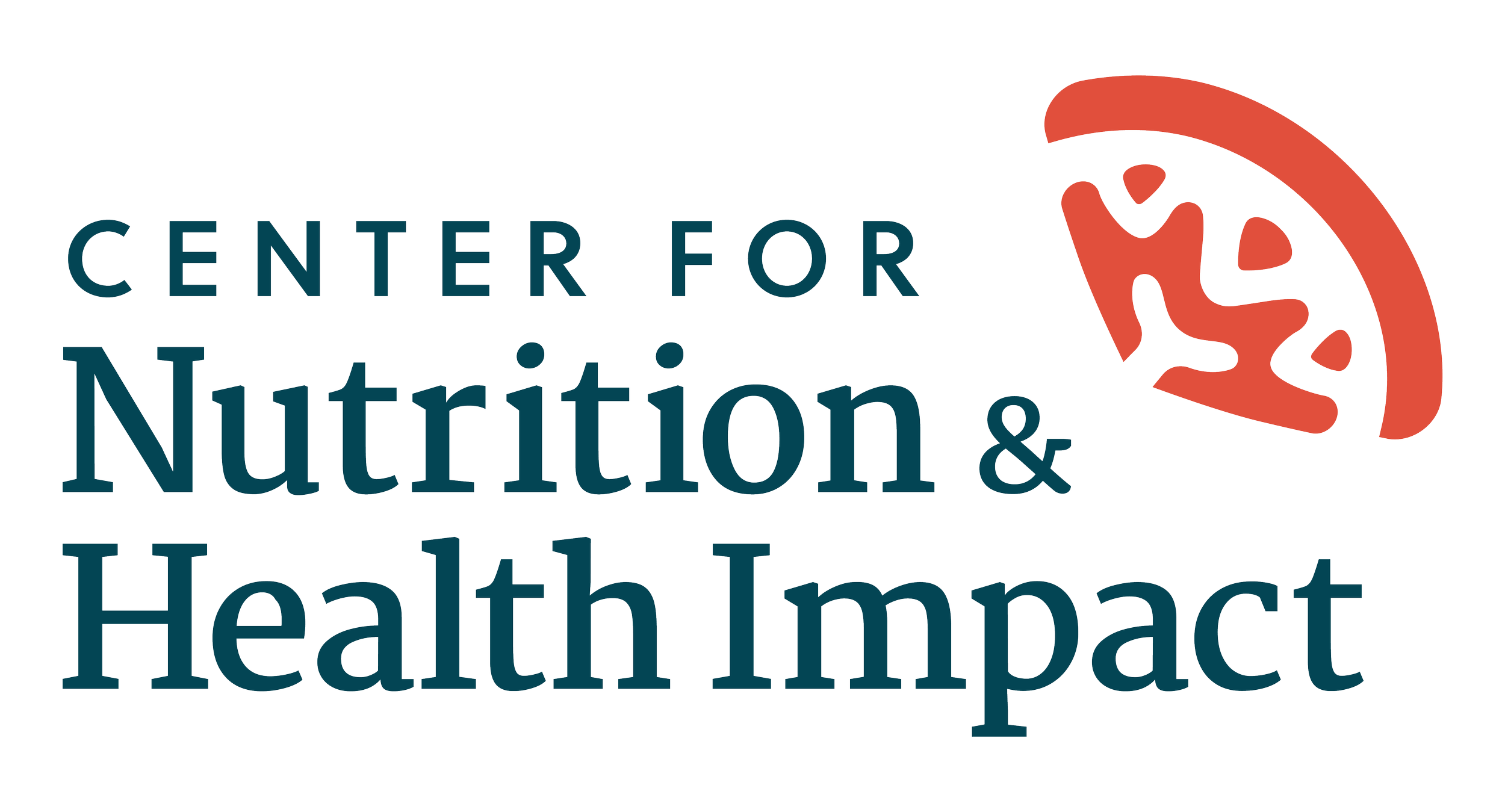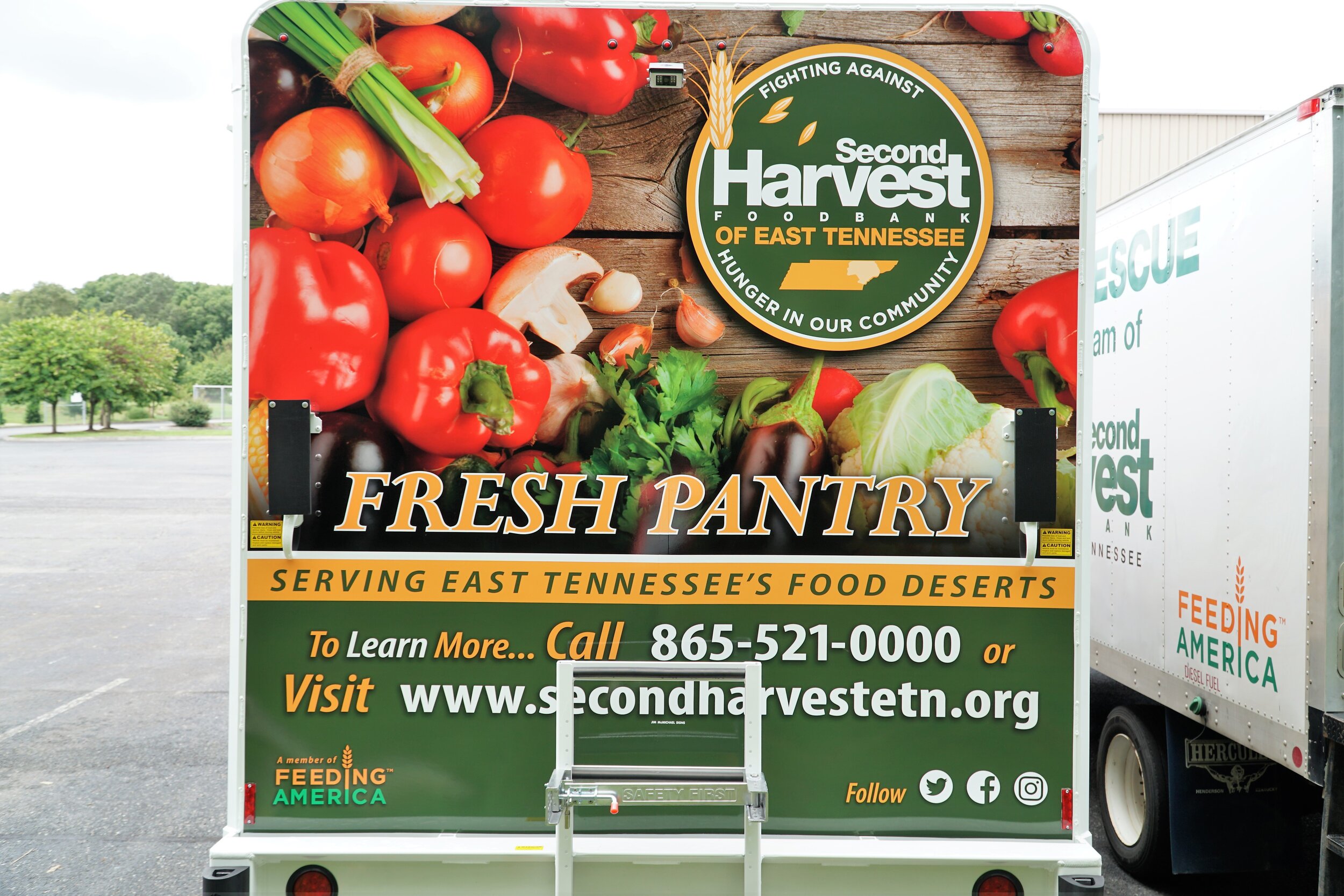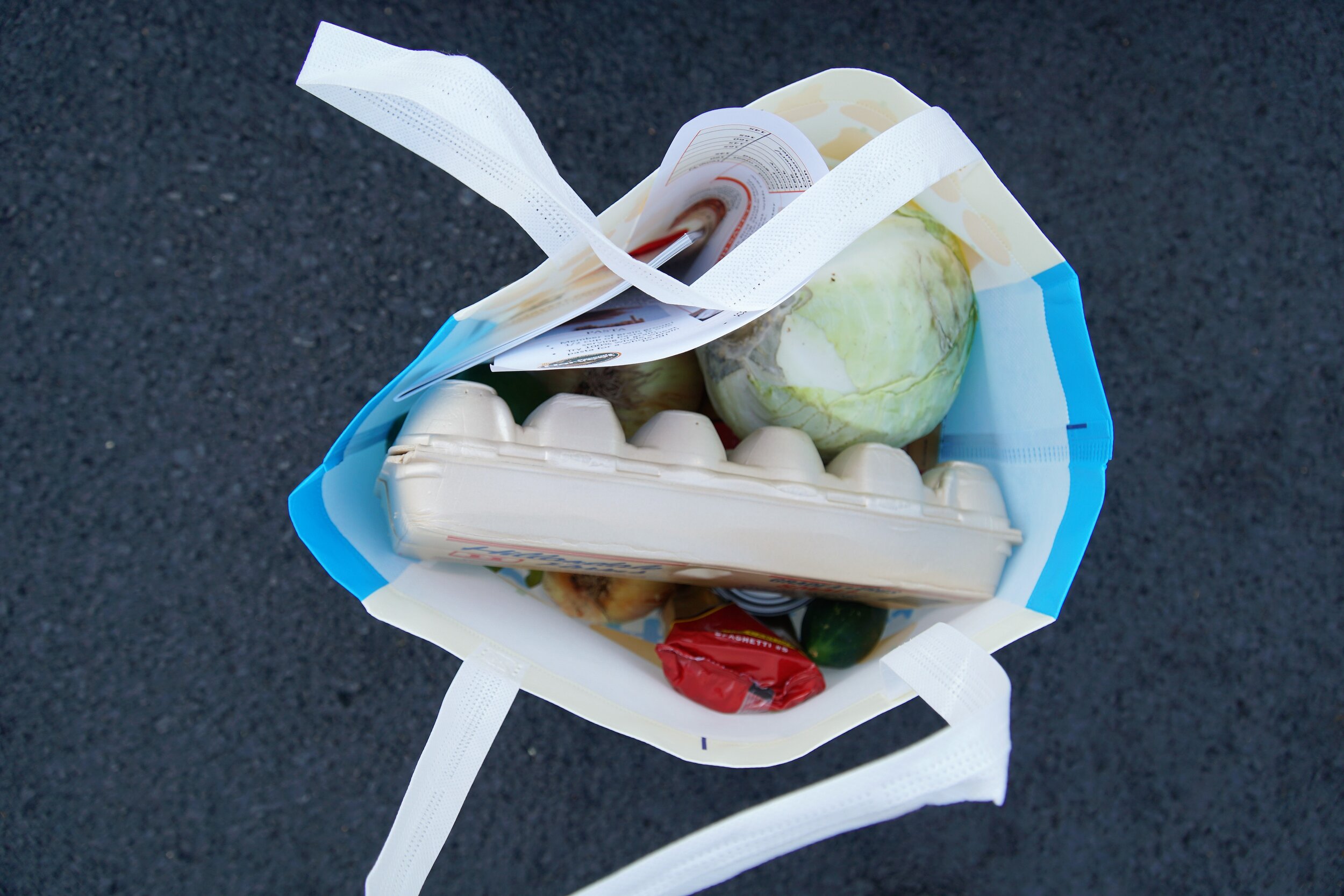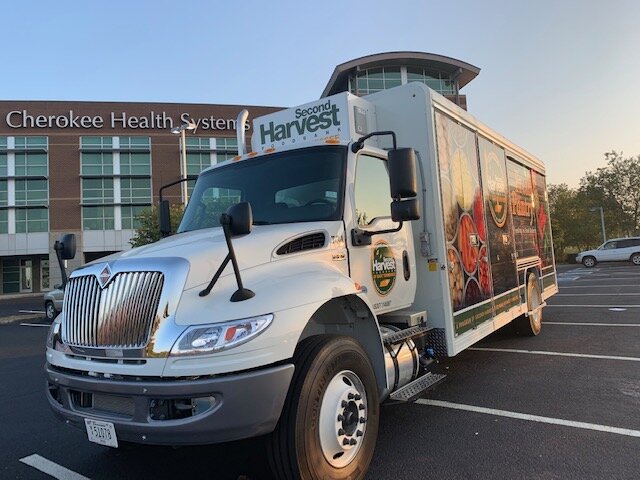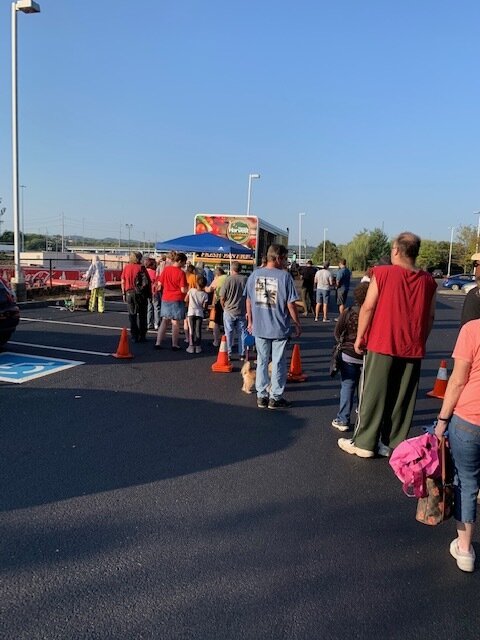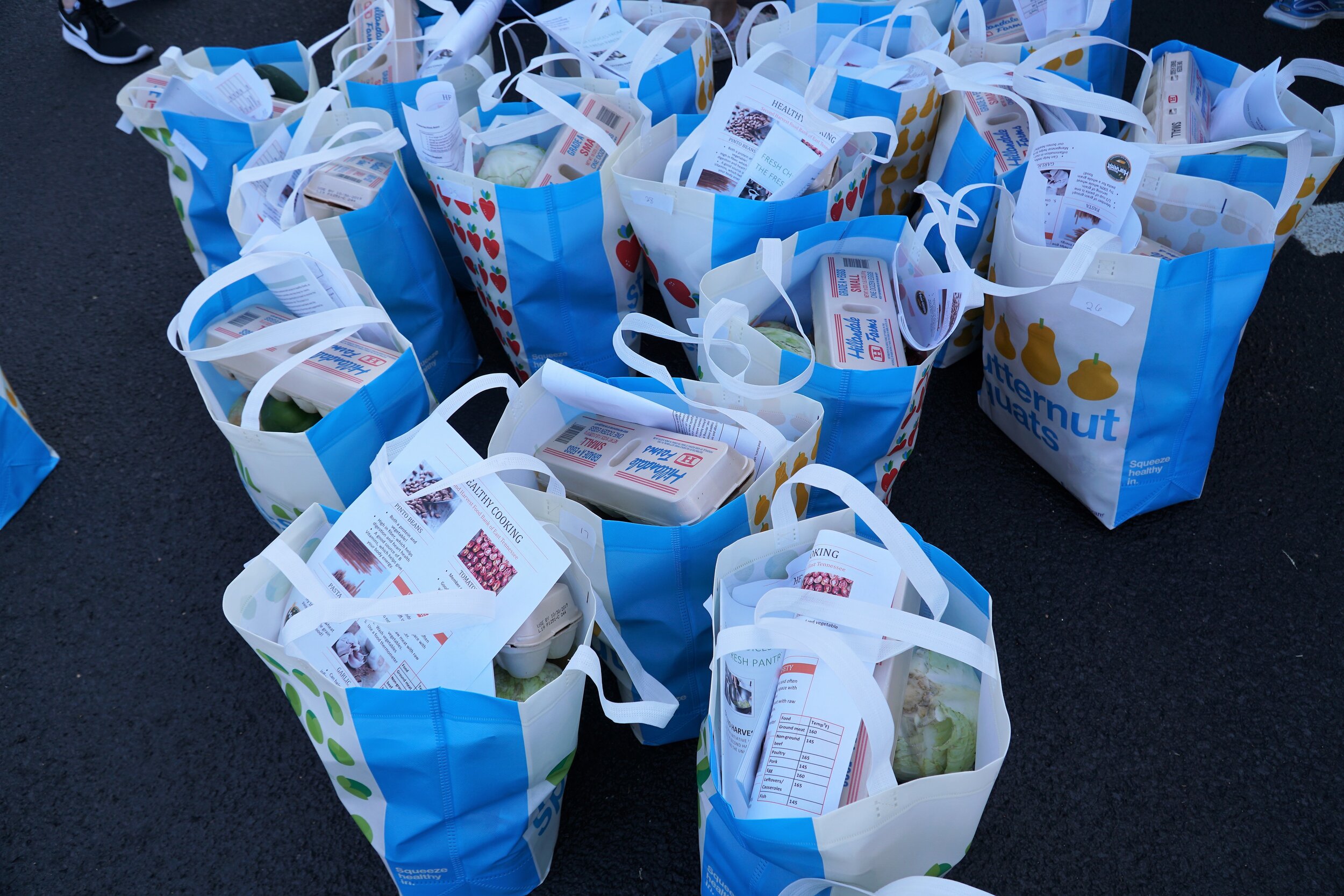Second Harvest Food Bank of East Tennessee
Maryville, Tennessee
Evaluation and technical assistance for the implementation of Second Harvest Food Bank of East Tennessee’s Fresh Pantry. The funding and partnership from the Rooted in Evidence grant will help assess the feasibility and reach of the Fresh Pantry Program, as well as its impact on access to fresh, healthier foods, nutrition knowledge, self-efficacy for cooking at home and dietary quality and intake of fruits and vegetables among Fresh Pantry participants.
Funded Program
Rooted in Evidence grantee, Second Harvest Food Bank of East Tennessee, is using grant funds for their Fresh Pantry Program. This health-supporting program is an expansion of Second Harvest’s Healthy Food Initiative that was started in 2012 to increase education and delivery of healthy foods to people in need in its 18-county service area. Now, through the Fresh Pantry program, the food bank is able to increase the access of healthy foods to people of low socioeconomic status living in food deserts. The integral component of the Fresh Pantry Program is a 26-foot multi-bay refrigerated truck with four refrigerated compartments and four dry goods compartments that enables Second Harvest to provide households in food deserts with fresh, healthier foods, which is secured from local farms, bulk-purchased food sources and the USDA Emergency Food Assistance program.
The Fresh Pantry truck rolled into action for the first time on Saturday, September 21, distributing fresh food to 318 people from 119 households. Monthly food distributions through the Fresh Pantry will be held at a federally qualified health center, in Knoxville, Tennessee, that serves low socioeconomic individuals and is within close proximity to public transportation. At the Fresh Pantry distribution site, clients can watch cooking demonstrations to learn about each product and how to make delicious meals from the distributed food, as well as taste test a featured recipe from food provided during distribution.
Q&A with Second Harvest Food Bank of East Tennessee’s Nutritionist Emily Parkman, RD
What about the Fresh Pantry Program excites you most?
I am most excited about providing nutritious food to the most vulnerable people in our communities--the food insecure in food deserts. The reason Second Harvest started its Healthy Food Initiative was to develop better ways to serve the people in our communities. The Food Pantry Program takes our Healthy Food Initiative to the next level, which is what makes it so worthwhile. Hearing the stories of our clients and connecting with them on a personal level affirms what a great need exists in these food deserts. With the help of the Gretchen Swanson Center for Nutrition, we are excited to develop a plan on how to give our clients a voice within the community. We are also excited to watch how increased access to healthier foods and nutrition education through the Fresh Pantry can empower our clients to live healthier lifestyles. We want our clients to get excited again about family dinner time!
What do you want to know most about the Fresh Pantry initiative and its impacts?
What I want to know most is the impact the Fresh Pantry has on a person’s overall diet pattern and whether it encourages our clients to try new foods and increase their level of confidence to prepare tasty meals.
What will data collection entail over the next six months?
Data collection will entail interacting with a client at three points during the data collection phase. The first interaction will be with a day-of-distribution survey, when our team will be able to spend ~15 minutes one on one with clients who volunteer to participate in our survey. During the initial survey, we will be able to capture a client’s current diet pattern and typical food resources. The next point of contact will be one week later via e-mail or phone to survey the participants on the effectiveness of the Fresh Pantry, such as the quality of the food as well as foods they would hope to see provided in the future. The last point of contact will be six months later in order to collect feedback to compare diet patterns and cooking habits before and after participation in the Fresh Pantry. A graduate student with the University of Tennessee Nutrition Department was hired and is responsible for coordinating team members to conduct interviews and follow-up surveys.
What was your biggest take away from the Omaha kick-off meeting?
The Omaha kick-off meeting was packed with so much helpful information that it is hard to just pick one point! I thought the “Guidelines for Best Practices with Qualitative Methods” presentation really provided thorough advice on how to help draw out a participant’s story and analyze the information provided. It made me realize how much more information you can gain from a person by asking more open-ended questions and allowing a more natural conversation to occur.
How has GSCN’s evaluation expertise and technical assistance benefited your organization so far?
GSCN has provided us with great resources and support throughout the entire process of developing a plan for evaluation and executing it. The staff at the Gretchen Swanson Center for Nutrition has been wonderful in answering all of our questions during the development phase, along with providing really great research-based feedback. By giving us homework, we were able to learn the process of developing an evaluation plan and really consider the many different components to obtaining data from our target population. They really provided us a step-by- step guide to developing a plan, while also taking time to listen to all of our ideas and give us functional feedback.
What are you hoping to do with the results of the evaluation? What is the next step?
We plan on using the information to better understand our participants and their needs in order to make Fresh Pantry more successful. We also hope to evaluate how Fresh Pantry impacts the overall health of our participants by eliminating the barriers surrounding an individual living with many burdens of food insecurity. We hope to engage our stakeholders by providing them with concrete data on how we are helping to promote healthier lifestyles and increase access to healthier foods to the food insecure within our community. We hope that this will increase interest and, therefore, donations for Fresh Pantry, thus allowing the program to continue to be funded. The next steps are to show our board and other staff members at Second Harvest of the value and importance of evaluating all of our programs as well. We hope this understanding will support the effort to develop more evaluation tools for the other programs offered by Second Harvest Food Bank of East Tennessee.
About Second Harvest Food Bank of East Tennessee
Located in Maryville, Tennessee, Second Harvest Food Bank of East Tennessee, serves food-insecure seniors, adults, children, veterans and people who are homeless by providing nutritious food, hope and dignity. Last year, the organization distributed 20 million pounds of food, which equates to over 16 million meals, to people in need throughout its 18-county area.
Mission: Lead the community in the fight to end hunger.
